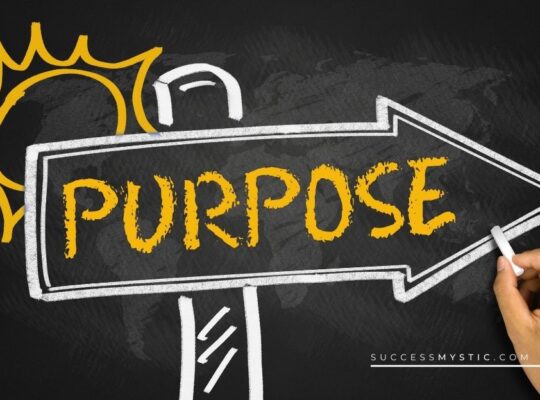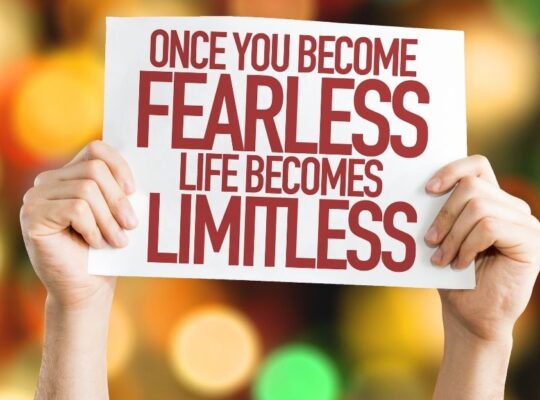It’s Time To Restart Your Environment
Do you have a toxic being in your environment? Do you struggle to say “no” to those things that contradict your values and everything that you stand for in your life? Are you a chronic Yes Man or Yes Woman?
Finding a way to say ‘no’ to a request a toxic friend, boss, co-worker, family, or even a complete stranger can be complicated for some people. It’s human nature to bend over backward to say ‘yes’ and help our fellow man.
However, saying ‘yes’ to everyone and specifically toxic people, can prove detrimental to your physical, psychological and social well-being.
Why Do People Struggle to Say ‘No’?
Perhaps you are wondering why so many people struggle to say “no” to toxic people in their lives. It’s a two-letter word that has a lot of weight. There is a fear that saying ‘no’ to someone else will lead to feelings of rejection within the other person or that others might later reject them.
Saying ‘no’ may contradict what you stand for as an individual. Some people experience embarrassment, and others may experience guilt.
Some people worry about what others will think about them if they say ‘no,’ and whether or not their reputation is now at stake for not giving in to a request.
According to Psychology Today, people have a need to be socially attached and not excluded.
As a result, they feel the need to say ‘yes’ so that they can garner social approval. According to Shoba Sreenivasan, Ph.D. and Linda E. Weinberger, Ph.D.., the desire for social approval generates:
- A feeling that they are a part of a unique group of individuals
- They are acting as a vital team player
- They are not difficult to work with in the workplace
- They know how to compromise
- The need to have other people’s stamp of approval
- A need to avoid being left out of “the group”
Also, they worry that telling others ‘no’ will disappoint someone else, or that others might become angry with them. Lastly, they fear that others may think they are rude and uncaring for choosing themselves over others.
How did they get here?
Why can’t they easily say ‘no’?
Some of this aversion to saying ‘no’ to someone else –even a toxic person, has to do with their upbringing. Close your eyes and mentally journey back to a time when you were a child.
When adult figures, a school teacher, parent, grandparent or coach in your life asked you to do something, you had to do what you were told and saying ‘no’ was not option. Saying ‘no’ was impolite, disrespectful and unconscionable. Many find it difficult to start saying no because this was engrained in them.
In the short term, saying ‘yes’ may help relieve their concern for what others will think. But on the flipside of the coin, they will suffer from the effects of saying yes to everything.
Signs You May Be a People Pleaser
People who have a hard time saying ‘no’ often get the title of ‘People Pleaser.’ What exactly is a people pleaser? People pleasers are those individuals who habitually dedicate themselves to pleasing others. They regularly place pleasing others above their own needs.
People pleasers are genuinely good people who mis-associate their willingness to help others with being kind. They view saying ‘no’ to a request as being selfish and often carry feelings of guilt.
They are often individuals who have endured poor treatment and may even live or work within a toxic environment. If you are a people pleaser, you did not become this person overnight. This penchant to please people grow over time.
According to Amy Morin, a licensed clinical social worker, psychotherapist, and author of 13 Things Mentally Strong People Don’t Do, suggests that “people pleasers, when struggling to say ‘no,’ will often make statements like “I don’t want to be selfish,” or “I just want to be a good person.” This sentiment leaves them susceptible to people taking advantage of them.
Morin identifies the following characteristics that commonly define the average people pleaser who struggles to say ‘no.’
You Make Yourself Responsible for Other People’s Happiness
People pleasers may deem themselves responsible for how someone else is feeling. Unfortunately, assuming that they can influence one person’s happiness in one way or another only ends up demanding more of them. Ultimately, they must realize that only that person can help themselves.
You are Frequently Apologetic
If you find yourself apologizing for things beyond your control or worry about others blaming you, you may be a people pleaser.
You Don’t Like It When Others Are Upset with You
Often, some of us choose not to say ‘no’ because we worry about how others will feel about them. they do not want them to be angry, and so, they compromise their values to please the other person.
You Hide Your True Feelings No Matter the Cost
People pleasers are not likely to give any hint to how they really feel about ‘the ask.’ They will execute the request, never once acknowledging their anger, frustration, humiliation or sadness.
You Avoid Saying ‘No’ to Avoid Conflict
Many people pleasers avoid saying ‘no because they do not handle conflict very well. Unfortunately, all of those efforts to avoid conflict means they compromise standing up for themselves or their values.
How Does Not Saying ‘No’ Effect Your Physical and Mental Health
Failure to say ‘no’ can hurt your health. In fact, according to PsychCentral.com those who frequently engage in people-pleasing behaviors increase their risk of diabetes, heart disease, and obesity.
Studies demonstrate that feelings of helplessness that may accompany giving a ‘no’ contributes a decreased immunity which can leave them vulnerable to illnesses or even conditions as serious as cancer.
You might think that putting the needs of others above your own might produce rewarding results for your psyche.
Of course, giving to others can be a positive experience and generate significant feelings of accomplishment and a sense of satisfaction that you were able to help someone. However, with time, people pleasing can send you into a cycle of instability.
Failure to create your path to ‘no’ on occasion can contribute to symptoms of depression, anxiety, and other psychological issues.
Understanding the Role of Toxic People
Toxic people in your day to day environment can have a detrimental effect on your decision-making.
Some people do not even recognize there are toxic people in their lives, or the degree to which they intrude upon happiness.
Here are a few signs you may have someone who is toxic in your life.
1| You Dread Seeing This Person
If you feel yourself cringe or hear an audible groan grow from within, it’s possible that this person is toxic. These individuals steal a lot of your energy and prevent you from enjoying your day, even when you aren’t around them.
2| This Person Makes You Feel Guilty about Everything
If a person leaves you feeling guilty about every decision you make that is not in their best interest, they are toxic. This individual, or group of people, influences you to make decisions that rarely align with your values or what is most important to you at the moment.
3| These People are Manipulating
Toxic people are experts at manipulation, they have the power to draw you into making bad choices. When things go wrong, you can trace your choices to people who encouraged you to take a wrong turn.
4| Toxic People Do Not See the Value in Others
Toxic people do not place value on the things you do. They cannot appreciate your efforts and only care about themselves.
5| They Cross All Boundaries
These people don’t care about the boundaries you set. Toxic people speak their mind and will sacrifice your feelings, space, or comfort to get what they want.
6| Toxic People Make You Feel Shame
Toxic people are extremely good at making you feel shame when you don’t comply with their expectations.
7| They Are Less than Truthful
Toxic people are not known for their honesty. They frequently change their story and alter the truth to fit their needs. Also, they are good at discrediting others to work to their advantage.
8| You Have to Rescue Them
Toxic people make you feel like their designated savior. Whenever they are in trouble or get into a jam of their making, they expect you will put your personal needs aside and fix everything.
9| You Tread Carefully
In addition to that feeling of dread when this person comes around you, it is highly probable that this toxic person makes you choose your actions and words carefully so as not to upset them.
10| You Have Little or No Power
Toxic people take your power. They become the authority figure in the relationship and come across as being excessively controlling.
11| Toxic People are Victims
Toxic people often see themselves as the victim. If you attempt not to help them solve a problem, or side against them in any capacity, they tie your action to every negative that has happened to them.
Benefits of Saying “No” to Toxic People
Saying ‘no’ to toxic people can be a healthy exercise for you and others who are involved with the path you are on. Saying ‘no’ opens you up to multiple benefits including but not limited to:
- A decrease in feelings of stress and anxiety
- Additional time to do the things you really want to do
- Feelings of personal and professional control
- Confidence
- Improved self-esteem
- Feelings of self-awareness
How To Know If You Are Saying ‘Yes’ Too Often
Toxic people have a way of tapping into your weaknesses and getting you to say ‘yes’ far too frequently. How do you know you might be saying ‘yes’ way too often? You can keep an eye out for a few of the following warning signs:
Non-stop State of Being Busy
If you find your list of things-to-do seems to grow and is never complete by the end of the day, there may be a chance that you are not saying ‘no’ when necessary.
You’re Always Multitasking
Do you find yourself continually juggling multiple deliverables at work, or home, throughout your day? If you are bouncing from one task item to the next, always in a rush to the point that by the end of the day you feel as though you have nothing to give, you are not saying ‘no’ often enough.
Your Guilt is Getting the Best of You
Feeling guilty about saying no because you might let someone down? If your heart is not in work, or request at hand, and you are feeling the need to say ‘yes’ when everything inside of you is screaming ‘no,’ you are saying ‘yes’ at a time you should be saying ‘no.’
Learning to Say “No” to Toxic People
Saying ‘no’ will undoubtedly trigger a wave of emotions including self-doubt, guilt, and even fear. With practice, saying ‘no’ will become easier. Essentially, learning to say ‘no’ will require you to break an old habit and create a new one. Keep in mind that building this new habit you will need patience to work through this process.
1| Keep an Eye Out for Your Body and Mind Cues
How do you know when it is appropriate to say ‘no?’ The good news here is that our bodies and mind have a great working relationship and can send us cues of when it’s time to push back, or make a dissenting decision. You may consider the following questions to determine whether or not your answer should be ‘no.’
Body Cues
- Will saying ‘yes’ lead to undue stress?
- Will saying ‘yes’ trigger new health problems or exacerbate existing problems?
- How does my body respond to the thought of ‘yes?’
Mind Cues
- Does saying ‘yes’ make you feel helpless?
- Would giving a respond of ‘no’ contribute to a positive outcome for you?
Saying ‘no’ will require you to deploy multiple strategies at different times, to make the right decision that is best for you. According to Mandy Day-Calder, life and health coach, there are four actions you will need to implement.
2| Challenge Your Mindset
Learn not to associate saying ‘no’ with negativity. Also, saying ‘no’ is not a selfish act. Rather, saying ‘no’ means you are self-aware. When preparing to say ‘no,’ weigh the pros and cons, but focus on the positive aspect of saying ‘no.’ Think of what you will gain in return for this decision such as a demonstration of personal and professional accountability.
3| Keep Calm
When you first receive the question, take a breath to weigh your options. Do not rush yourself to make a decision. Day-Calder suggests that you allow just enough time to see the bigger picture.
4| Listen to Your Body and Your Mind
Your mind and body will figure into your decision-making process. The key will be for you to pay attention to the cues. There will be an instinctual need, or feeling, to give in to what people are asking of you, but your goal must be to stay in control of your decision-making activities.
5| Don’t Beat Yourself Up
Once you answer ‘no,’ do not overthink the decision, or overly reflect by creating ‘what if’ scenarios. Instead, trust yourself and keep it moving.
Here are a few additional tips for learning to say ‘no.’
6| Start by Saying ‘No’ to A Small ‘Ask’
Learn to say ‘no’ by starting with the small things.
7| Give Your Opinion about Something Small
Learn to give an opinion about something small. It could be something as basic as choosing a restaurant for dinner, offering your advice about an outfit, or whose turn it is to drive to the mall.
8| Take a Stand
Stand up for a value you hold dear and believe in yourself.
How to Say No to Toxic People
Getting to the ‘no’ requires you to increase your self-awareness, self-confidence, self-empowerment, and self-esteem. Let’s examine these vital character traits.
1| What is Self-Awareness
Self-awareness is having a clear understanding of all the things that comprise you. We are not born with it. It is something that develops over time and enables you to know your strengths, weaknesses, beliefs, motivation, and emotions. Having awareness enables you to make appropriate changes to your behavior, values or beliefs. It allows you to navigate the journey of your personality, feelings or behavior from moment to moment.
According to the Harvard Business Review, self-awareness can lead to the following:
- Better decisions
- Healthier relationships
- Success in the workplace
- Better communication
2| How to Build Self-Awareness
How can you begin to build your self-awareness? Having self-awareness can prove to be useful in helping you identify those things or people that are toxic in your life. However, seeing yourself as you truly are will require you to deploy a few of the following self-awareness techniques.
Get to Know Yourself
Practice self-reflection and get a better understanding of what makes you tick. Learn to accept what works, but identify the things you need to improve. Keep a journal and document events to track how you respond in various circumstances, your innermost thoughts, and how you arrive at certain decisions. The key is to be objective.
Take a Personality Test
Personality tests like the Myers-Briggs test are an excellent way to understand who you are. If you give honest responses, this test will help you identify the key traits or characteristics of being you.
Once you have this information, you can begin to gain insight into what you need to function at your highest level.
Practice Mindfulness Meditation
Meditation has a way of improving your self-awareness. Mindfulness is the act of being present, and fully aware of the here and now. Put mindfulness and meditation together, and you can create space between yourself and the way you tend to respond to various situations during your day.
3| About Self-Confidence
Saying ‘no’ requires you to have very little doubt about where you stand on a particular issue or the alternative suggestions you pitch back. Many people confuse being self-confident with being arrogant, but these two character traits are not the same thing.
According to the Psychology Dictionary Online, self-confidence has to do with your ability to trust your ability, capacity, judgment or belief that you can handle the daily challenges and demands you may encounter. Self-confidence has a reputation for generating happiness.
Self-confidence plays a significant role in your future and how well you can achieve and sustain success.
How to Build Self-Confidence
Building self-confidence and your self-esteem are very similar and require you to re-imagine everything you think you might know about yourself and your life.
Learn from Your Mistakes
Rather than taking it on the chin every time you make a mistake, write down what happened and figure out how to improve.
Do Not Deny Those Compliments
You might be worried about the negative consequences of your decision to say ‘no,’ but others will compliment you for being strong. When those compliments arrive, accept them. Do not shy away from them or dismiss those positive words. Use them as your fuel to push ahead and do something more significant.
Practice Positivity
This tip may seem repetitive, but positivity delivers great power. It motivates you to want to do better.
4| What is Self-Empowerment
Saying ‘no’ begins with self-empowerment. What is self-empowerment? Self-empowerment is all about taking control of your life which includes your physical and mental wellness. Self-empowered people never relinquish their power to other people. Instead, they become experts about themselves and what does or does not work.
They know the things that compromise their values, and they are full of confidence and ripe with self-esteem. These people are decision-makers for the smaller and bigger aspects of their existence and what equates to living a high-quality life.
Envision being the subject matter expert about all things you. Once you arrive at this place, you become an authoritarian on what is best for you, and what is or is not within your current plans.
Self-empowerment means not having to be dependent on someone else for the ups and downs in your life. You are the owner of your happiness, your joy, your successes and what counts as true love. Toxic people may think they are the owner of each of these things, but a self-empowered individual can recognize the difference between self-empowerment and toxic.
How to Achieve Self-Empowerment
How can you achieve self-empowerment? There are a few actions you can execute to take back your power.
Build Self-Awareness
Self-awareness entails taking stock of yourself as an individual, your current level of power and surrounding environment, includes the people in your circle. With awareness, you can begin to identify those things that trigger negative feelings and outcomes, and start to disassociate from them thereby enabling yourself to reclaim your power.
Relinquish the Ghost of Yesterday
Get rid of the old baggage and toxic people who have kept you from feeling comfortable to value yourself. Their mistreatment of you yesterday influences the way you think, and the guilt you may feel when daring to utter the words ‘no.’ How well you can achieve inner peace will hinge on how well you can exist in the here and now and not yesterday.
Focus on the Now
Do not allow yourself to focus on every consequence of your actions. Focus on the now and accept what is waiting for you over the long term of this process.
Take Accountability and Responsibility for Your Life
Self-empowerment means taking accountability and responsibility of your life. This act of ownership will enable you to confront and dismiss any feelings of guilt while finding your way to freedom, and independence.
Don’t Lie. Be Honest about Your Feelings
Empowerment will mean that you are an individual who is capable of telling the world how you feel. It will also give you the power to steer clear of lying. And lessen your need to endure those pesky feelings of shame or guilt. When you eventually become comfortable with saying ‘no,’ you won’t want to submerge your stance within a pool of lies. You will want to stand in your truth.
5| What is Self-Esteem
Self-esteem is the value or worth we assign to ourselves. Self-esteem can be influenced by multiple factors or events in our lifetime ranging from childhood experience with our parents and siblings to present day coworkers, bosses, and friends. How these people value us and how well they treat us can have a detrimental effect on how we view ourselves.
Toxic people will breed low self-esteem as they have the power to make us question our self-worth.
For example, imagine that you want to go back to school to pursue an advanced degree. Your toxic friends may tell you it’s a waste of time and that you will never finish it, or that you are not smart enough. Over time, if your self-esteem is already low, their toxic words may discourage you.
How to Improve Your Self-Esteem
Your self-esteem may be in an unstable state, but the good news is that you can improve your self-esteem by adopting some useful techniques.
Identify Your Strengths and Build Them
Everyone has at least one thing they are good at. If you stop and think for a minute, you know what you are best at. Work on increasing that strength. Such as taking classes, getting a better job or to generate additional income. Your goal should be to do the thing that allows you to bask in the glory of what you do well.
Practice Positivity
Being positive requires far less energy than being negative. Start by practicing positive affirmations each day. Find one thing positive to say about yourself. Rebuild your circle of friends and support network to include positive people and slowly move away from those with toxic energy. Find the people who want to see you succeed, and will not bash you when you decide to value yourself above other things.
Stop Being Your Worst Critic
When your self-esteem is at the bottom of the barrel, you have a nasty habit of adding insult to injury, by being your worst critic. Self-criticism does nothing for your self-esteem and only serves to make any situation worse. Stop criticizing yourself and your decisions. Learn to accept yourself and all of your imperfections.
Do Not Continue to Set Yourself Up for Failure
Do not allow others to hold power over you. If you allow others to control you, you may place yourself at risk or compromise your values.
Document Your Successes
Start documenting your successes. When something goes really well, write that down.
6| Back to Saying “No”
You have to pay attention to your behaviors, emotional response, and initial instincts to determine where you should make changes. As you identify those physical and mental cues, you must define what trends are emerging with each experience.
Based on your decisions, examine what you gain or lose with each situation. From there, determine whether or not to lead with a “yes” or “no” based on that experience. Ask yourself the following question after each episode of giving a “yes” or “no,” “what did I gain and what did I lose from this situation?”
Saying ‘no’ is rarely a simple ‘no.’ Generally speaking, an effective ‘no’ requires us to deliver it in parts.
First, we must acknowledge the request that is being made by the other party. Acknowledge that they may have a legitimate need for our knowledge, skills, and ability. Also, you want them to know that you acknowledge their need.
When giving your ‘no,’ keep it simple. Be clear about why you are unable to deliver on the individual’s request.
Next, if you choose to help the requester at another time, you can propose an alternate time and/or method in which you can assist them. For example, the requester needs your help today after 5 p.m., but you have other plans. You are willing to help them but today is not a good day. You can suggest an alternative day and/or time.
Managing the Toxic People in Your Life
Mastering “no” is just one part of the equation. Now you have to remove these toxic people from your life. Here are a few steps you can take to remove the toxicity from your life.
Accept that you will not have the ability to change this person.
Accepting that you cannot influence this person to change their ways wins half of the battle. This part of the process will make your decision easier to accept, as you make strides to carve this person out of your life slowly.
Create boundaries and hold yourself accountable for keeping them in check.
Establish a few rules for this individual and be ready to enforce those rules. Do not allow a toxic person to manipulate your ability to stay strong. Reassess those boundaries as often as possible and initiate new limits if you find any weaknesses in the original blueprint. Stay consistent in upholding these boundaries.
Do not continue to save this person
Get ready to say “no.” There will be a day when you have little choice but to say “no” to their request for help. You will have to learn to prioritize your needs and empower yourself not to feel any shame or guilt for making this decision.
Recognize that their crisis is not your crisis
Drama is exhausting. Do not allow someone else to bring it into your house. Toxic people are very good at drawing other people in to solve their woes. Do not let this person make their crisis your crisis. Remember, you can offer alternative ideas or solutions, but it’s up to that individual what they chooses to do with your advice.
Prepare yourself for backlash
This toxic person will not readily comply with your new way of existing, nor will they go quietly. Be prepared to steel yourself for the backlash which may include harsh words and tones.
Build a stronger support system
Examine your relationships and work on ridding yourself of all toxic relationships. This task will not be an easy exercise for you, but the long-term benefits of this decision will benefit your mental and physical wellness in multiple ways.
Protect Your Happiness
Take steps not to allow this person or people to steal your joy. This action will require you to not subject yourself to caring what these toxic people think during tense moments. Look for opportunities to celebrate your values and once again, remind yourself of the positive aspects of sticking to your plan.
Meanwhile, cease new opportunities to build stronger relationships with people who value you and will lift you during difficult times.
Final Thoughts
In summary, restarting your environment and learning to say ‘no’ to all things that do not serve you or your end goal will require you to change the way you think. You will have to remove toxic people from your environment and learn to stop feeling guilty about valuing yourself more than others.
To restart your environment, it will require you to take a long look at yourself and conduct a bit of self-assessment and evaluation. This activity may need you to hit the reset button on everything that defines your self-awareness, self-confidence, self-empowerment, and self-esteem.
A new network of friends or even a brand new fresh start in another town or state may also be necessary for you to reclaim what is rightfully yours and that is yourself.







